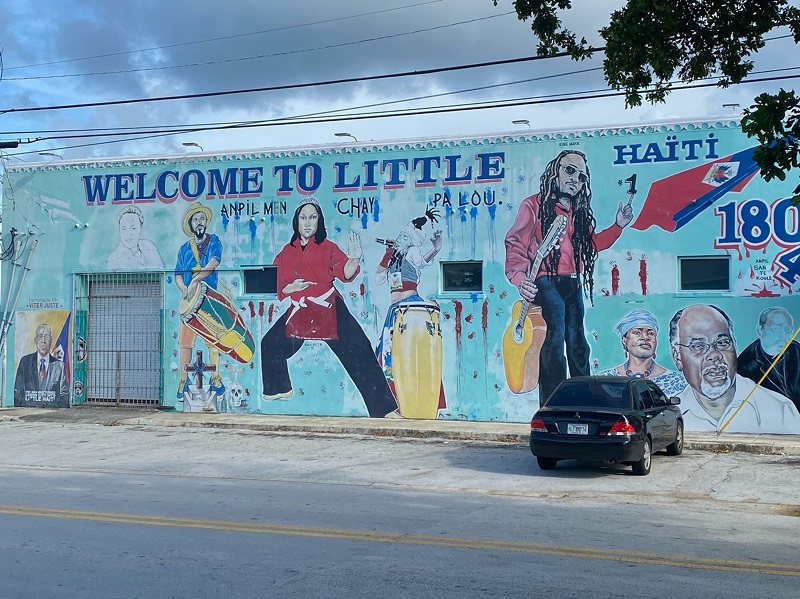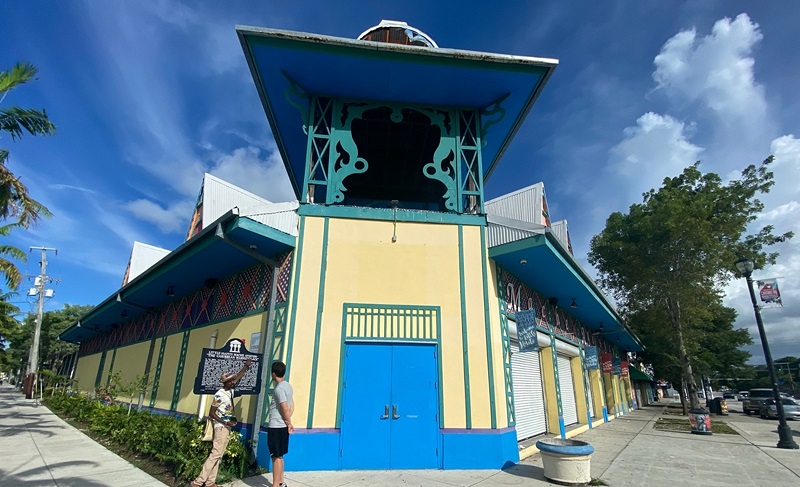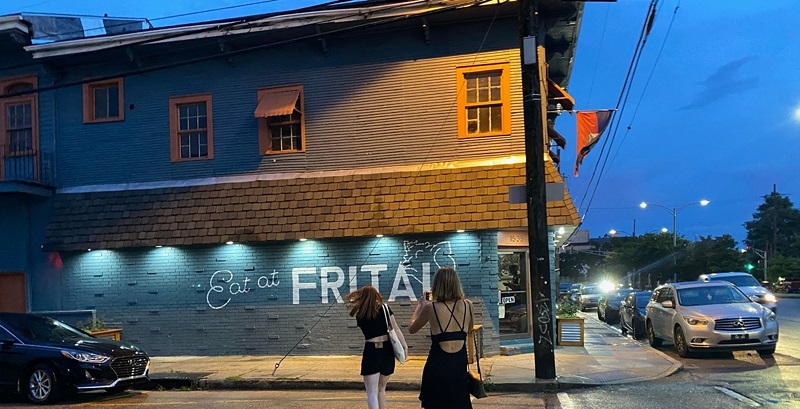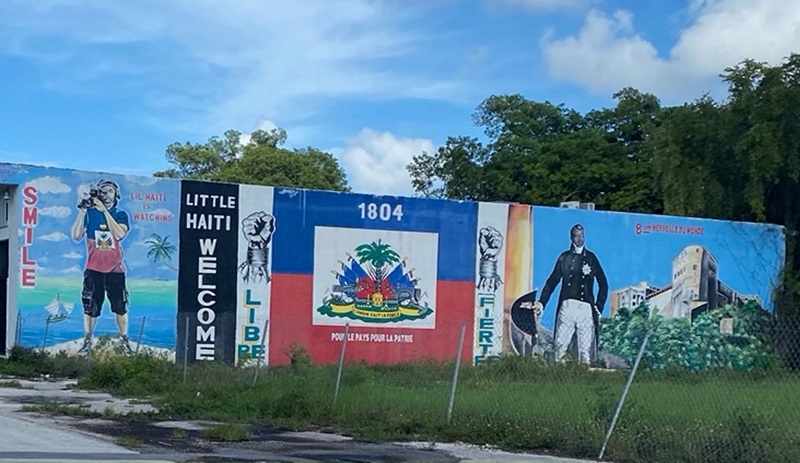Keeping up with Altmans: Jordan Kirsh-Clemenceau Researches Information Gaps & Access in U.S. Haitian Communities
Jordan Kirsh-Clemenceau of the 2023 cohort conducted an independent research study in the summer of 2021. With interests in the field of technological innovation and product accessibility, Jordan wanted to explore the impact that technology accessibility has on Haitian communities throughout the United States. He held dozens of in-person interviews in Haitian communities in five different U.S. cities. He interviewed store owners, Haitian organization directors, politicians, national community advocates, businesspeople, tv/radio personalities, teachers, artists, authors, museum directors, and others in the Haitian community. He told us about his experience last summer and his takeaways from the research.
What is the topic of your research?
“I aimed to examine the impact of information gaps and information access in Haitian metropolitan communities including New York City, Boston, New Orleans, Miami, and Washington D.C. for a student led independent research project. I personally am interested in information accessibility and its intersection within technology and financial affairs, regarding community and international development.
For the study, I developed questionnaires that analyzed the potential impact that information access has on various U.S. based Haitian immigrant communities in their ability to protect their community, pursue economic opportunities, effectively utilize technology. In my final thesis, I plan to examine the impact that information accessibility has on levels of personal freedom and individual autonomy across the five U.S. Haitian communities studied.”

Why did you decide on this research project?
“According to data from 2020, Haitian immigrants represent 2+ percent of the U.S.’s foreign-born population and generally live in communities that are not well integrated within the surrounding cultural areas and local communities. Due to this issue of ineffective transition into U.S. communities, community political leaders can remain inaccessible to Haitians. Due to this, many Haitian leaders have fought and succeeded in being elected to political positions. This political success is generally centered across the larger U.S. Haitian communities and Haitian voices and influence in politics are still neglected in smaller, more fragmented non-urban Haitian communities. Therefore, these communities often create individualized communities and remain self-sufficient, isolated from the concerns of leaders or external communities.
"Throughout Haitian communities that are more fragmented and lack significant political influence, information access is often facilitated through intermediaries such as Haitian leaders, external leaders, or local organizations. Each of these individuals or organizations hold differences in priorities, bias, and perceptions. Each of these differences result in additional negative implications that stemming the topic I am studying, information access.”

What do you plan to do with the finished research?
“Firstly, I would be interested in providing my research to think tanks, NGOs, political leaders, local and external decision makers, and political advocacy groups to further bolster each of these metropolitan Haitians communities’ voices/needs. I believe that community initiatives and support programs can be implemented in a manner that is more directed, efficient, and effective. Secondly, I will apply for publishing of my final research thesis through Tulane’s undergraduate research journal in spring 2023.”
What have you learned during this process?
“Throughout my research, I believe that my most significant accomplishment was building credibility and trust among different Haitian communities I visited and organizations I worked with. For example, this resulted in the opportunity to ask questions to multiple Haitian elected political officials in Miami and New York, in addition to being connected with one of the most successful and respected Haitian rights advocates living in the U.S.
“I learned the importance of accessibility in one’s life, especially for an immigrant population living in the U.S. This accessibility gap can be seen in the struggle for access to and direct communication with politicians or other external or internal leaders among access to public services and more. I also learned through firsthand perspectives how difficult it is to navigate a political, educational, judicial, or financial system when you are facing a language or cultural barrier. Lastly, I learned from my interviewees about how the U.S. immigrant support systems consistently fails to adequately address difficulties in restarting a life in the U.S and places individual success and family stability at a level that is often arbitrarily inaccessible.”

Acknowledgments:
“I am grateful to have received academic grants from the Tulane Altman Program, Tulane’s Taylor Center and Center for Public Service, and Newcomb Tulane College. Additionally, Professor Myrlene Bruno, who teaches Haitian studies at Tulane, agreed to be my faculty advisor. Also, Professor Klinger helped provide me with academic support from the French Department. Lastly, Ms. Norah Lovell from Newcomb College provided me with faculty advising after my selection as a Jean Danielson research scholar. Lastly, thank you to Tulane’s IRB for guiding my interviewee protection protocols.
“Further, I was fortunate enough to gather a wide variety of Haitian perspectives on the differing role of information access. The community organizations (listed by city) that helped facilitate interviews and provide interviewees:
Miami: Sant La: Haitian Neighborhood Center, The Little Haiti Cultural Center, Tap Tap Tours of Little Haiti, Haitian Action Network Movement, WSRF Haitian radio, Haitian Cultural Arts Alliance, Haitian Professionals Group, Miami, Florida City Council Representatives and Council Members
NYC: Haitian Times, Haitian Progress Newspaper, Konbit Neg Lakay (New Jersey), Haiti Cultural Exchange, NYC Council Brooklyn,
New Orleans: Haitian Association for Human Development, Tulane Immigrant Rights Law Clinic, Tulane University and Tulane French Department
Boston: Haitian Multi-Services Center (Dorchester, Boston)
“My project would not have been possible without the help and support of all the organizations and individuals above.”
View Jordan's research presentation here: https://tulane.box.com/s/uvfzztcx7pqrq6adddt6gw2mu5t88jpl

